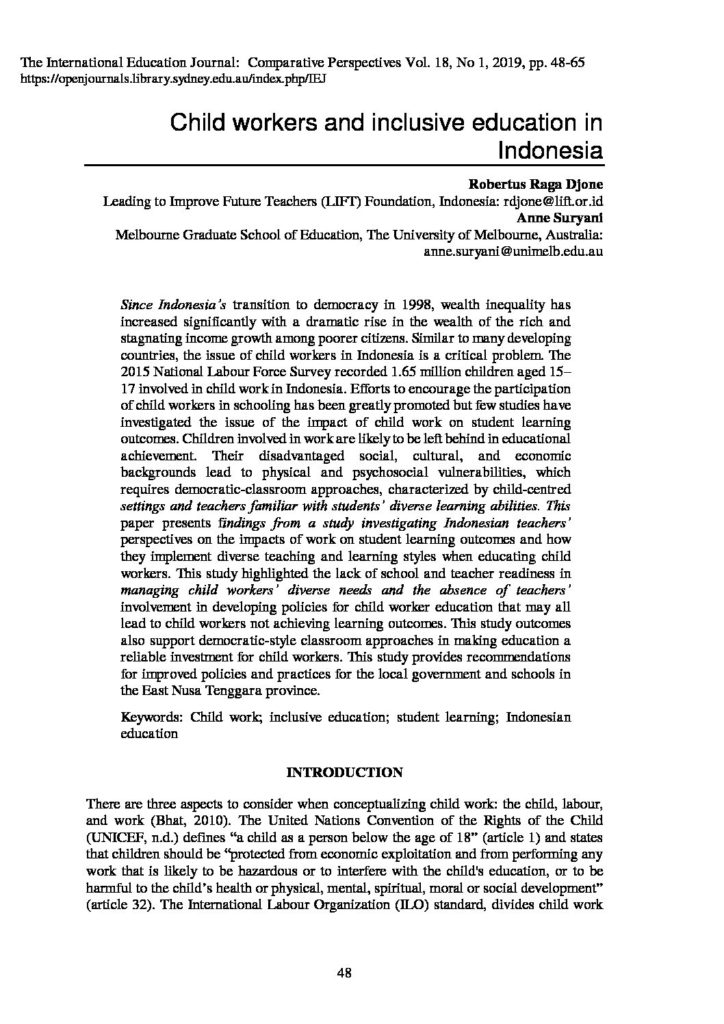
Child workers and inclusive education in Indonesia
Summary
This article is published in International Education Journal: Comparative Perspectives and is distributed under the terms of a Creative Commons license
Since Indonesia’s transition to democracy in 1998, wealth inequality has increased significantly with a dramatic rise in the wealth of the rich and stagnating income growth among poorer citizens. Similar to many developing countries, the issue of child workers in Indonesia is a critical problem. The 2015 National Labour Force Survey recorded 1.65 million children aged 15–17 involved in child work in Indonesia. Efforts to encourage the participation of child workers in schooling has been greatly promoted but few studies have investigated the issue of the impact of child work on student learning outcomes. Children involved in work are likely to be left behind in educational achievement. Their disadvantaged social, cultural, and economic backgrounds lead to physical and psychosocial vulnerabilities, which requires democratic-classroom approaches, characterized by child-centred settings and teachers familiar with students’ diverse learning abilities. This paper presents findings from a study investigating Indonesian teachers’ perspectives on the impacts of work on student learning outcomes and how they implement diverse teaching and learning styles when educating child workers. This study highlighted the lack of school and teacher readiness in managing child workers’ diverse needs and the absence of teachers’ involvement in developing policies for child worker education that may all lead to child workers not achieving learning outcomes. This study outcomes also support democratic-style classroom approaches in making education a reliable investment for child workers. This study provides recommendations for improved policies and practices for the local government and schools in the East Nusa Tenggara province.
Discussion
Users can discuss this report and make suggestions for future updates. You must be signed in to submit a comment.
No comments
Join the conversation and
Become a Member Existing member loginbecome a member.